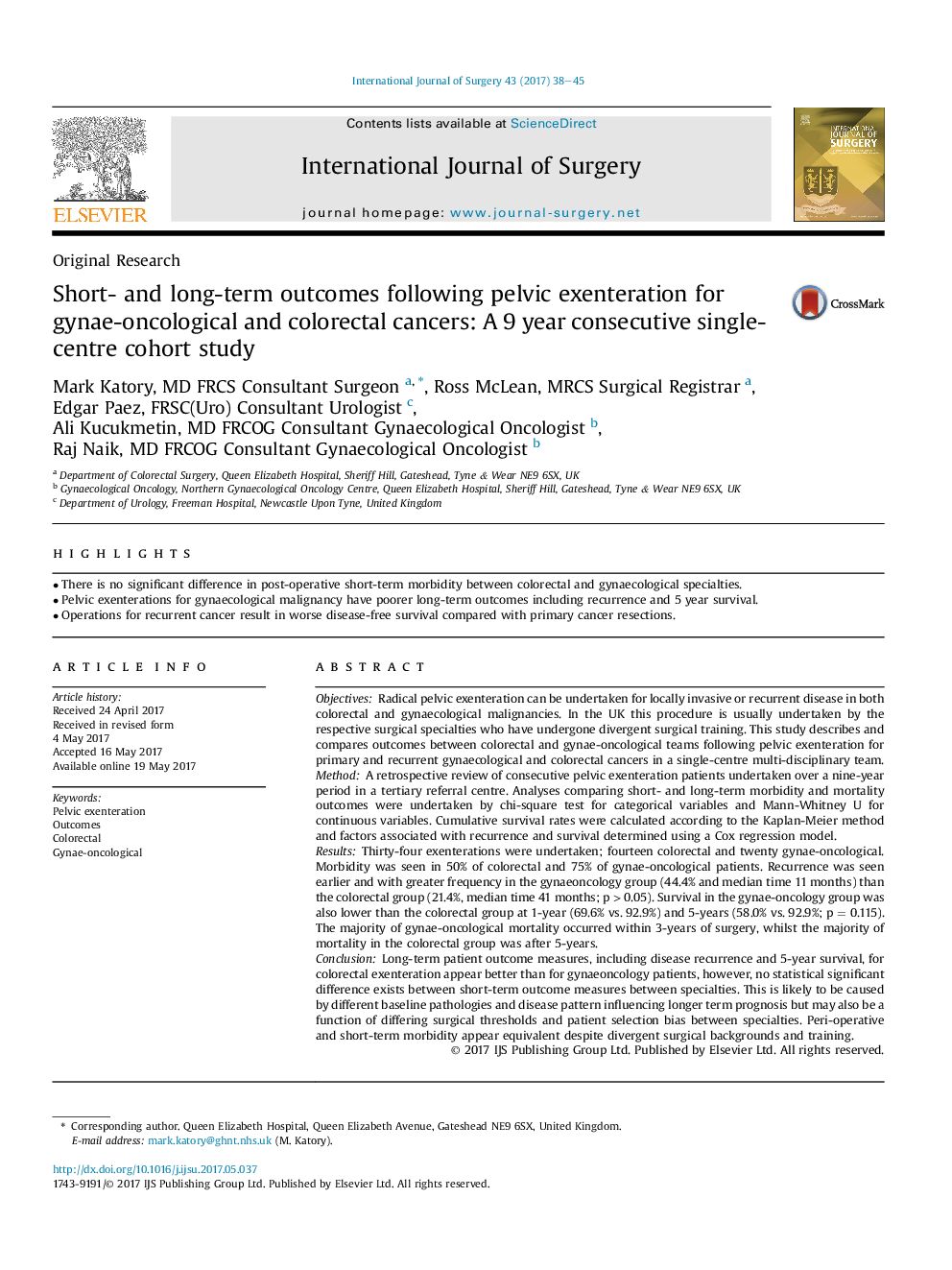| کد مقاله | کد نشریه | سال انتشار | مقاله انگلیسی | نسخه تمام متن |
|---|---|---|---|---|
| 5732135 | 1611935 | 2017 | 8 صفحه PDF | دانلود رایگان |
- There is no significant difference in post-operative short-term morbidity between colorectal and gynaecological specialties.
- Pelvic exenterations for gynaecological malignancy have poorer long-term outcomes including recurrence and 5 year survival.
- Operations for recurrent cancer result in worse disease-free survival compared with primary cancer resections.
ObjectivesRadical pelvic exenteration can be undertaken for locally invasive or recurrent disease in both colorectal and gynaecological malignancies. In the UK this procedure is usually undertaken by the respective surgical specialties who have undergone divergent surgical training. This study describes and compares outcomes between colorectal and gynae-oncological teams following pelvic exenteration for primary and recurrent gynaecological and colorectal cancers in a single-centre multi-disciplinary team.MethodA retrospective review of consecutive pelvic exenteration patients undertaken over a nine-year period in a tertiary referral centre. Analyses comparing short- and long-term morbidity and mortality outcomes were undertaken by chi-square test for categorical variables and Mann-Whitney U for continuous variables. Cumulative survival rates were calculated according to the Kaplan-Meier method and factors associated with recurrence and survival determined using a Cox regression model.ResultsThirty-four exenterations were undertaken; fourteen colorectal and twenty gynae-oncological. Morbidity was seen in 50% of colorectal and 75% of gynae-oncological patients. Recurrence was seen earlier and with greater frequency in the gynaeoncology group (44.4% and median time 11 months) than the colorectal group (21.4%, median time 41 months; p > 0.05). Survival in the gynae-oncology group was also lower than the colorectal group at 1-year (69.6% vs. 92.9%) and 5-years (58.0% vs. 92.9%; p = 0.115). The majority of gynae-oncological mortality occurred within 3-years of surgery, whilst the majority of mortality in the colorectal group was after 5-years.ConclusionLong-term patient outcome measures, including disease recurrence and 5-year survival, for colorectal exenteration appear better than for gynaeoncology patients, however, no statistical significant difference exists between short-term outcome measures between specialties. This is likely to be caused by different baseline pathologies and disease pattern influencing longer term prognosis but may also be a function of differing surgical thresholds and patient selection bias between specialties. Peri-operative and short-term morbidity appear equivalent despite divergent surgical backgrounds and training.
Journal: International Journal of Surgery - Volume 43, July 2017, Pages 38-45
